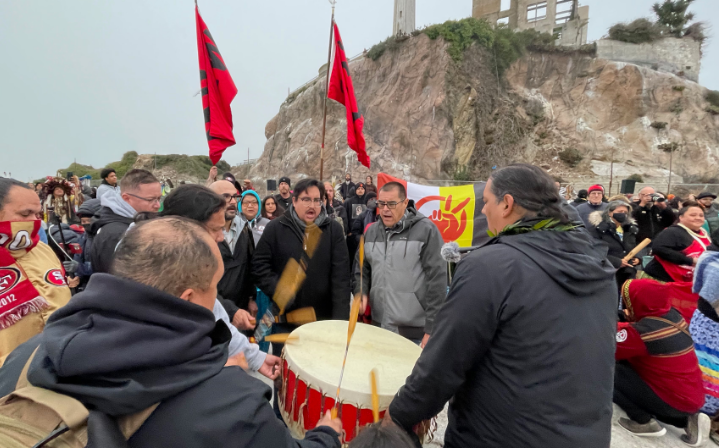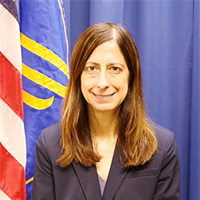
- Details
- By Native News Online Staff
In August 2023, Mary L. Smith, a tribal citizen of the Cherokee Nation, became the first Native American to lead the American Bar Association (ABA), the largest voluntary association of lawyers in the world. She was installed as the president of the ABA at the organization's convention in Denver. On Monday, Smith released the following statement to commermorate Indigenous Peoples' Day:
On this Indigenous Peoples’ Day, the American Bar Association pays tribute to the rich diversity of the American Indians, Native Hawaiians and Native Alaskans who have contributed so much to the culture and success of our nation. While we reflect on the history and contributions of Indigenous peoples, we also should use this day to reaffirm our commitment to justice, equality and respect for all.
Indigenous Peoples’ Day provides an opportunity to admire and recognize the extraordinary contributions of Indigenous peoples to our society in fields ranging from public service to entrepreneurship and the arts. Indigenous peoples serve in the military at a much higher rate than other groups, have been reliable and persistent stewards of our environment for centuries and have played a critical role in shaping the legal landscape of our country.
The Declaration of Independence, the U.S. Constitution and the Bill of Rights put forth the idea that all people have certain fundamental rights that the government needs to protect, mainly the promise of equality for all people. Unfortunately, that is a promise that our nation has never fully lived up to, especially when it comes to Indigenous peoples.

Historical injustices have been inflicted upon Indigenous peoples, including forced removals, dispossession of lands and attempts to eradicate their languages and cultures. As lawyers, it is our responsibility to recognize these wrongs, uphold the dignity and rights of Indigenous peoples and work towards a more equitable future for all.
The ABA remains committed to supporting Indigenous communities in their pursuit of justice and self-determination by endorsing efforts to strengthen tribal sovereignty, protecting Indigenous sacred sites and ensuring equal access to justice within tribal jurisdictions. The ABA recognizes the importance of respecting tribal treaties, promoting economic development on reservations and confronting the persistent issue of missing and murdered Indigenous women.
Indigenous Peoples’ Day is a day to celebrate achievements, but it is also a time to issue a call to action for all lawyers to stand in unity with Indigenous communities, amplifying their voices and working together to advance a more just future for all.
More Stories Like This
Native News Weekly (August 25, 2024): D.C. BriefsNavajo Nation Mourns the Passing of Former Vice President Rex Lee Jim
Deb Haaland Earns Endorsement From Communications Workers of America Local 7076
University Soccer Standout Leads by Example
Two Native Americans Named to Democratic Congressional Campaign Committee's“Red to Blue” Program
Help us defend tribal sovereignty.
At Native News Online, our mission is rooted in telling the stories that strengthen sovereignty and uplift Indigenous voices — not just at year’s end, but every single day.
Because of your generosity last year, we were able to keep our reporters on the ground in tribal communities, at national gatherings and in the halls of Congress — covering the issues that matter most to Indian Country: sovereignty, culture, education, health and economic opportunity.
That support sustained us through a tough year in 2025. Now, as we look to the year ahead, we need your help right now to ensure warrior journalism remains strong — reporting that defends tribal sovereignty, amplifies Native truth, and holds power accountable.
 The stakes couldn't be higher. Your support keeps Native voices heard, Native stories told and Native sovereignty defended.
The stakes couldn't be higher. Your support keeps Native voices heard, Native stories told and Native sovereignty defended.
Stand with Warrior Journalism today.
Levi Rickert (Potawatomi), Editor & Publisher


